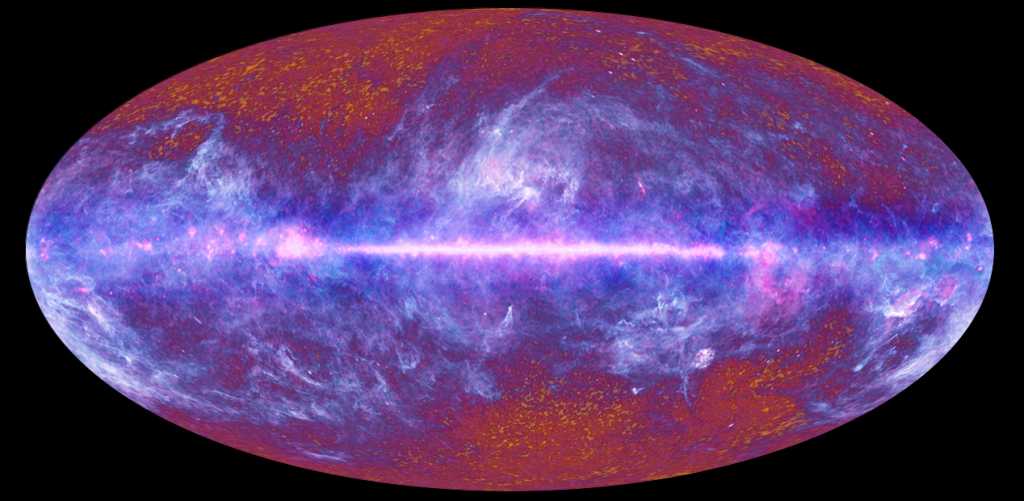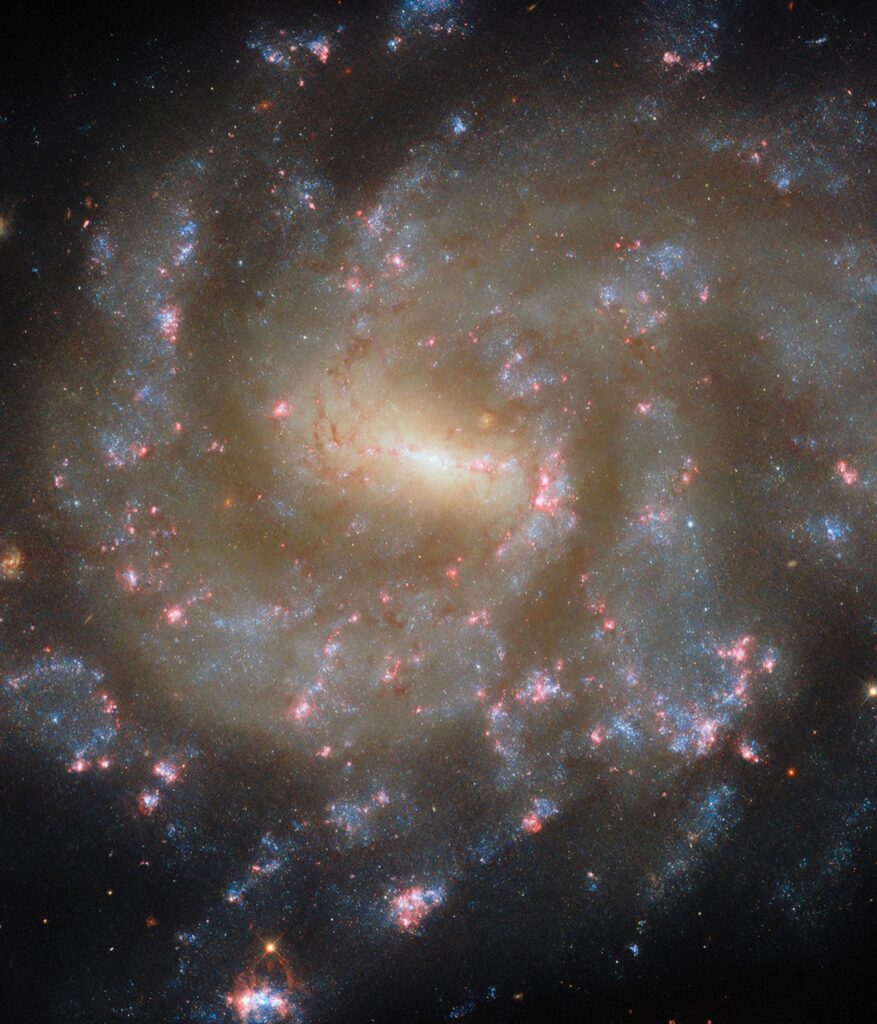A metallic-looking rock that smashed through the roof of a residential home in New Jersey’s Hopewell Township earlier this week is indeed a meteorite — a rare one about 4.6 billion years old, scientists confirmed on Thursday (May 11).
“It was obvious right away from looking at it that it was a meteorite in a class called stony chondrite,” Nathan Magee, chair of the physics department at The College of New Jersey (TCNJ), whose office was contacted by the Hopewell Township police soon after the rock was found on Monday (May 8), told Space.com.
Chondrites are primitive rocks that make up 85% of meteorites found on Earth. Most chondrites found to date have been discovered in Antarctica; only rarely does one crash in populated areas.
Related: What are meteorites?

The New Jersey rock, which is about 6 inches long by 4 inches wide (15 by 10 centimeters), is a notable exception. It slammed into the Hopewell Township house, dented the floorboard, punched two holes in the ceiling and was still warm when it was discovered by Suzy Kop in her father’s bedroom around noon on Monday.
“I’m looking up on the ceiling and there’s these two holes, and I’m like, ‘What in the world has happened here?'” Kop told 6 ABC’s Trish Hartman (opens in new tab).
Once emergency responders cleared Kop, her family and their home of any harmful radioactive residues, Kop handed over the space rock to the nearby college for further inspection.
At TCNJ, Magee’s team consulted Jerry Delaney, a retired meteorite expert who had worked on the meteorite collection at the American Museum of Natural History in New York. The team confirmed the space rock to be about 4.56 billion years old, which means it has been around since the beginning of our solar system and represents the leftover fragments from its creation.

The 2.2-pound (0.9 kilograms) meteorite, which will likely be named Titusville, NJ — the postal address closest to its landing site — is “in excellent condition, and one of a very small number of similar witnessed chondrite falls known to science,” Magee said in a statement on Thursday.
The top layer of the meteorite has a blackened crust a few millimeters thick from partially burning up in Earth’s atmosphere. Using a hand lens designed to look at rocks closely, his team found that the meteroite’s minerals are blue and gray in color, with a small amount of other metals mixed in, Magee told Space.com.
Rock, rock … who’s there?🪨 TCNJ physics professor Nate Magee confirmed today that the object that recently crashed landed into a home not far from campus is, indeed, from outer space. Read more from the @AP: https://t.co/e2zbpQyEfk@tcnjscience #tcnj #tcnjiseverywhere pic.twitter.com/FMXH5YtEeUMay 11, 2023
Related stories:
The team studied the rock’s texture and composition by placing it inside a large chamber of a scanning electron microscope. Based on initial estimates, the meteorite is a chondrite of class LL-6, which has less iron than other members of its family and is at least 30 to 40% denser than the most common rocks on Earth, like slate or granite.
“So it was clear it was not an Earth rock,” Magee told Space.com.
Even before the space rock had breached Earth’s atmosphere, it was exposed to a lot of heat in outer space that had heavily altered its structure and composition, so much so that it is difficult to easily distinguish individual grains or chondrules that make up the meteorite, scientists shared in Thursday’s update (opens in new tab).
Follow Sharmila Kuthunur on Twitter @skuthunur (opens in new tab). Follow us on Twitter @Spacedotcom (opens in new tab) and on Facebook (opens in new tab).


